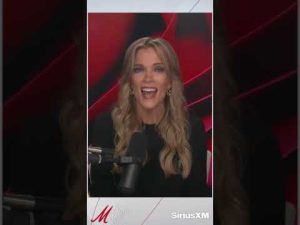In the latest episode of the ongoing saga between Harvard University and the Trump administration, a curious twist has emerged. The White House recently backtracked on what it had previously declared as its list of demands for the Ivy League school, dismissing it as a mistake. The administration’s swift retreat seemed almost comical, suggesting a level of disorganization that might even make a government bureaucracy look efficient. Harvard, of course, had no qualms about publicly rejecting the demands when they were initially imposed. This incident highlights the ongoing tension between traditional academic institutions and government overreach.
Now, one might think Harvard, with its bloated $52 billion endowment, wouldn’t care much about any federal funding threats. However, as former Education Secretary Bill Bennett explained, much of this hefty sum is tied to specific purposes, like supporting endowments for niche chemistry studies or the next great pole vaulter from Kansas. So, when the Trump administration threatened to cut off more than $2 billion in federal funding, it wasn’t simply a hollow threat—at least not in theory. But having made a dramatic about-face, one has to wonder whether anyone in the administration remembers where they last left their compass.
Such antics bring to light more than just a bureaucratic misstep; they expose an underpinning legal and ethical conflict. The Trump administration’s focus includes not only the dictated list but also potential violations of civil rights laws, with echoes of past cases. There’s talk of alleged discrimination against certain student groups, reminiscent of the 2023 Supreme Court case lodged by Asian students citing unfair admissions practices. Secretary Bennett mused over whether Harvard was still in defiance of such standards, suggesting, almost conspiratorially, that if Harvard remained a bad actor, its federal funding stash should be cut completely.
Harvard students, snug within the historic walls of their institution, seem to be rallying around their school’s decision to spurn the government’s demands. It’s amusing that the students equate rejecting a curious governmental letter with standing up for “academic integrity.” They passionately assert their pride in Harvard’s stance, though it might just be the puffed-up pride of students more endeared to idealism than the practicalities of endowment management and civil rights compliance. Meanwhile, the administration might want to worry less about sending harried letters and more about what real inquiries might uncover within such Ivy-covered towers.
In a twisted mixture of comedy and bureaucracy, this frantic backpedaling serves as a reminder of the tumultuous relationship between academia and policy. Rather than issuing apologies or straightforward corrections, this dance around the “mistake memo” reveals a glaring hypocrisy. Maybe the administration’s underwhelming performance is fitting for a country where making demands and then retracting them is becoming alarmingly commonplace. It’s almost as if this melodrama was written for television, perhaps destined to be a summer rerun, where everyone—politicians, academics, even students—ends up as caricatures of themselves, playing out an age-old story of power and principle.







